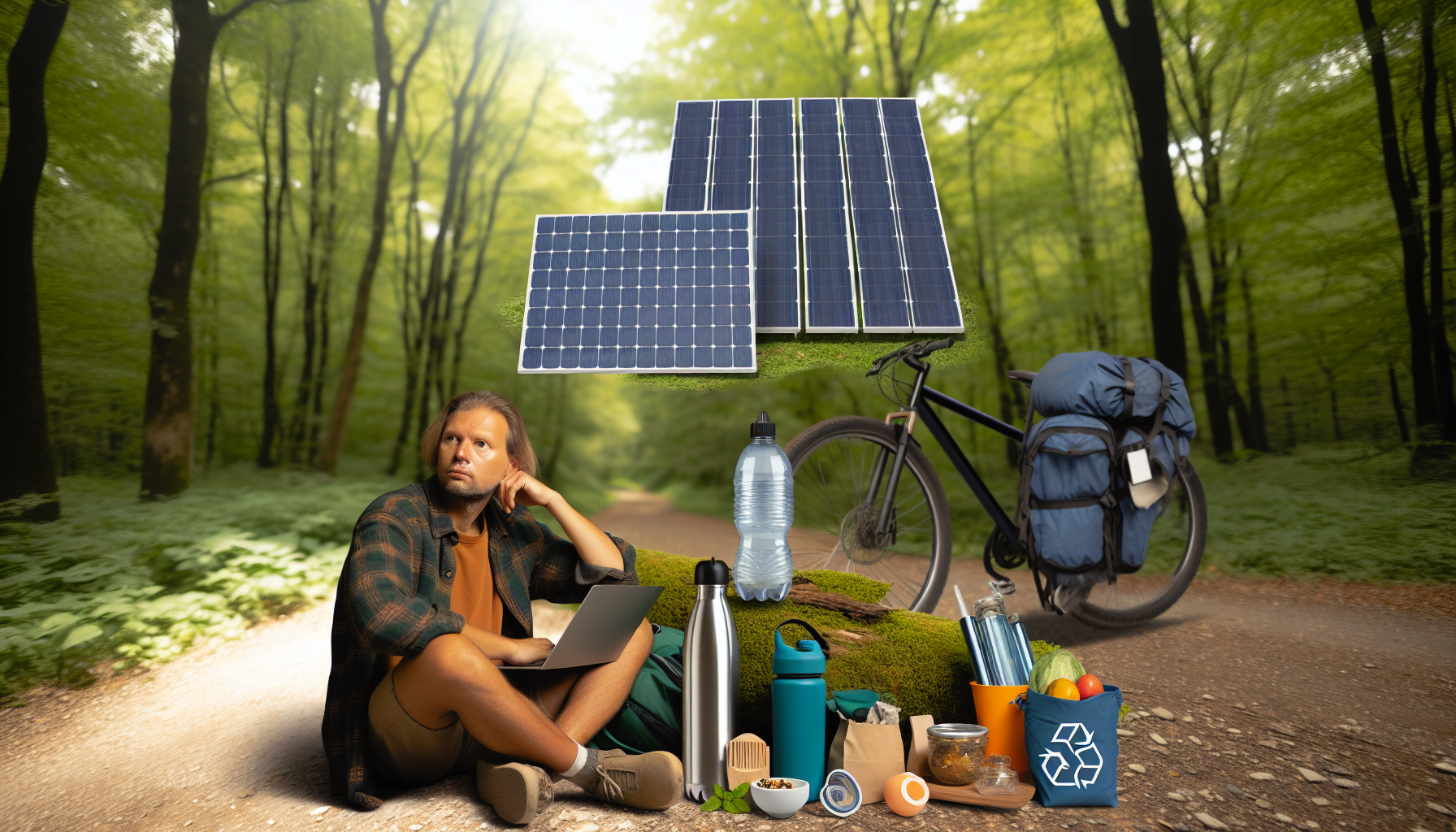As a digital nomad, the world is your office. But with great freedom comes great responsibility—especially when it comes to our environment. Traveling the globe while minimizing your environmental footprint is a challenge worth taking on. Whether you’re just starting your digital nomad journey or you’re a seasoned traveler looking to be more eco-conscious, this guide is for you.
Key Takeaways:
- Sustainable travel choices can significantly reduce your carbon footprint.
- Efficient resource management, like water and energy, is crucial.
- Local community engagement fosters environmental and cultural respect.
- Choosing eco-friendly transportation modes makes a difference.
- Packing smart and light contributes to a lesser environmental impact.
Sustainable Travel Choices
Every mindful decision you make adds up. Staying in eco-friendly accommodations and choosing destinations known for their environmental programs can positively impact our planet.
Expert Quote: “Travel is the only thing you buy that makes you richer. Just make sure it doesn’t make the planet poorer.” — Unknown
Opt for hostels, lodges, or hotels that have green certifications. These establishments often employ energy-saving measures, waste-reduction programs, and sometimes even offer guests ways to participate in sustainability practices.
Efficient Resource Management
Water and energy are precious, and often wasted commodities. Using resources efficiently can make a big difference in locales where these may be in short supply.
Water Usage: Reuse towels and bed linens during your stay. Keep your showers short and turn off the tap while brushing your teeth.
Energy Usage: Turn off lights, heating, and cooling systems when not in use. Use energy-efficient electronics and unplug chargers when they’re not needed.
| Accommodation | Water Saving | Energy Conservation |
|---|---|---|
| Eco-Friendly Hotels | Reuse towels and sheets | Solar panels for energy use |
| Hostels | Low-flow showerheads | LED lights throughout |
| Local Homestay | Rainwater harvesting | Wind turbines |
Engage with Local Communities
Being one with the locals can have positive environmental implications. Spending money in local establishments ensures your tourist dollars benefit the local economy. Participate in community clean-up efforts or support businesses that promote sustainable practices.
Expert Quote: “Preserving cultural heritage is essential to maintaining our cultural identity.” — Unknown
Transport Wisely
Transportation accounts for a significant part of a traveler’s carbon footprint. Opt for trains, buses, or carpooling options rather than short flights or rentals.
| Mode of Transport | Carbon Footprint | Eco-Alternative |
|---|---|---|
| Airplane | High | Direct Flights or Offsets |
| Car | Medium | Electric Vehicles or Carpooling |
| Train | Low | Use Rail Pass for Longer Trips |
Pack Smart and Light
The heavier the luggage, the more fuel your mode of transportation will consume. So pack only essentials.
Personal Example: When I first started my nomadic journey, I lugged around a 70-pound suitcase. I quickly realized that half of the items were unnecessary. Now, I travel with just a 30-pound carry-on, and trust me, it makes a world of difference.
Living Tips
- Reusable Items: Carry reusable utensils, bottles, and bags to minimize plastic waste.
- Zero-Waste Kits: Invest in a zero-waste travel kit which includes biodegradable toiletries.
- Locally-Sourced Foods: Choose foods that are locally sourced to reduce food miles.
- Eco-Friendly Gadgets: Use solar-powered chargers or compostable phone cases.
In your journey towards making a minimal environmental impact, you’ll discover the beauty of responsible travel—lessening your footprint while immersing yourself in the local culture. Curious to learn more? Check these resources to delve deeper:
Source Links:
FAQ
Q: How can I find eco-friendly accommodations?
A: Look for accommodations with green certifications, such as LEED or Green Globe. Websites like Booking.com and Airbnb have filters for eco-friendly stays.
Q: What’s the best way to manage waste while traveling?
A: Carry reusable items and a small waste bag for compostable and recyclable trash until you can dispose of it properly.
Q: Can I offset my carbon footprint?
A: Yes! Many organizations offer carbon offset programs where you can invest in renewable energy projects or tree planting to balance out your carbon emissions.
Embarking on a sustainable journey will not only enrich your travel experiences but also help protect the places you love to explore. Happy eco-friendly travels!
